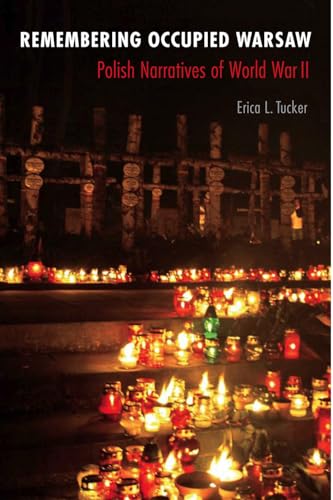
Remembering Occupied Warsaw
by Erica L. Tucker
"Polish Narratives of World War II"
Popularity
1.15 / 5
* A book's popularity is determined by how it compares to all other books on this website.
Where to buy?
Buy from Amazon* If you buy this book through the link above, we may receive a small commission at no extra cost to you.
Remembering Occupied Warsaw by Erica L. Tucker
Details
War:
World War II
Perspective:
Civilian
True Story:
Yes
Biography:
Yes
Region:
Europe
Published Date:
2011
ISBN13:
9780875806556
Description
Main Themes and Topics
Remembering Occupied Warsaw by Erica L. Tucker delves deeply into the exploration of collective memory and cultural legacy within the context of World War II. It focuses on the elderly residents of the Zoliborz neighborhood in Warsaw, offering an ethnographic study of how they recollect and commemorate their experiences during the German occupation. The book examines themes of resilience, cultural identity, and the process of recovery from the traumas of war. By highlighting the roles that these individuals played during the occupation and the Warsaw Uprising of 1944, Tucker sheds light on the intertwining of personal memories with the broader historical events that shaped contemporary Polish society.
Writing Style and Tone
Tucker's writing is both scholarly and accessible, merging meticulous ethnographic fieldwork with engaging narrative storytelling. Her tone is empathetic and respectful, capturing the dignity and courage of those who lived through the occupation. She effectively uses life histories and personal anecdotes to bring the voices of her subjects to the forefront, allowing readers to connect with the personal dimensions of historical events. This approach makes the book appealing not only to academic audiences but also to general readers interested in history and memory studies.
Brief Summary (no spoilers)
This important ethnographic work offers a rare glimpse into the lives of Warsaw's elderly residents who experienced the German occupation. Focusing on the neighborhood of Zoliborz, Tucker documents how these individuals participated actively in the Polish underground and the Warsaw Uprising in 1944. Despite the destruction around them, their efforts contributed to the preservation and reconstruction of their community. Using personal narratives and ethnographic research, the book explores how these memories contribute to the collective cultural identity and historical consciousness of post-war Poland. Through the lens of personal stories, Tucker provides insights into the profound process of remembering and commemorating the past within a community that witnessed war's devastation.









